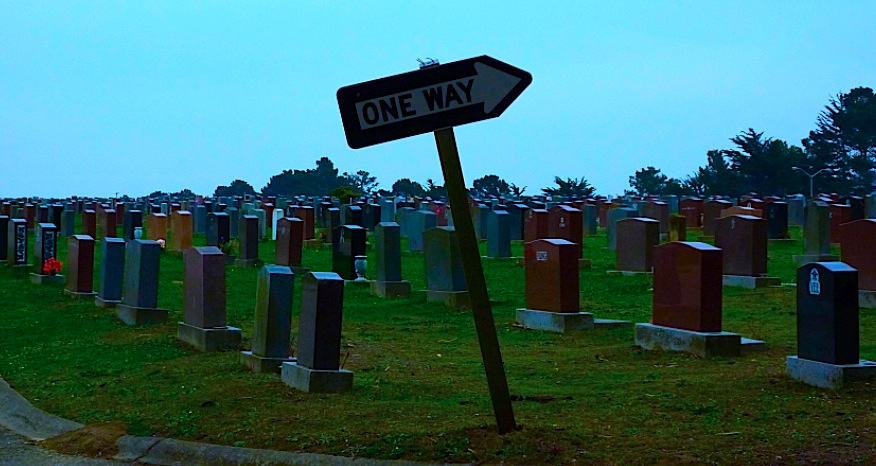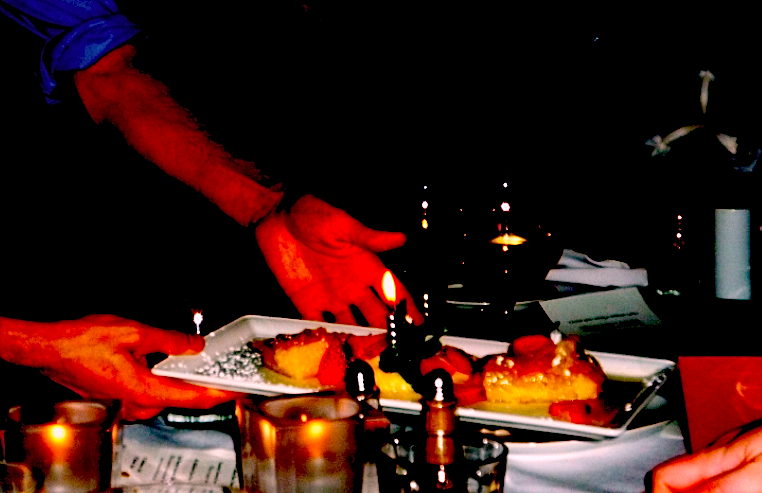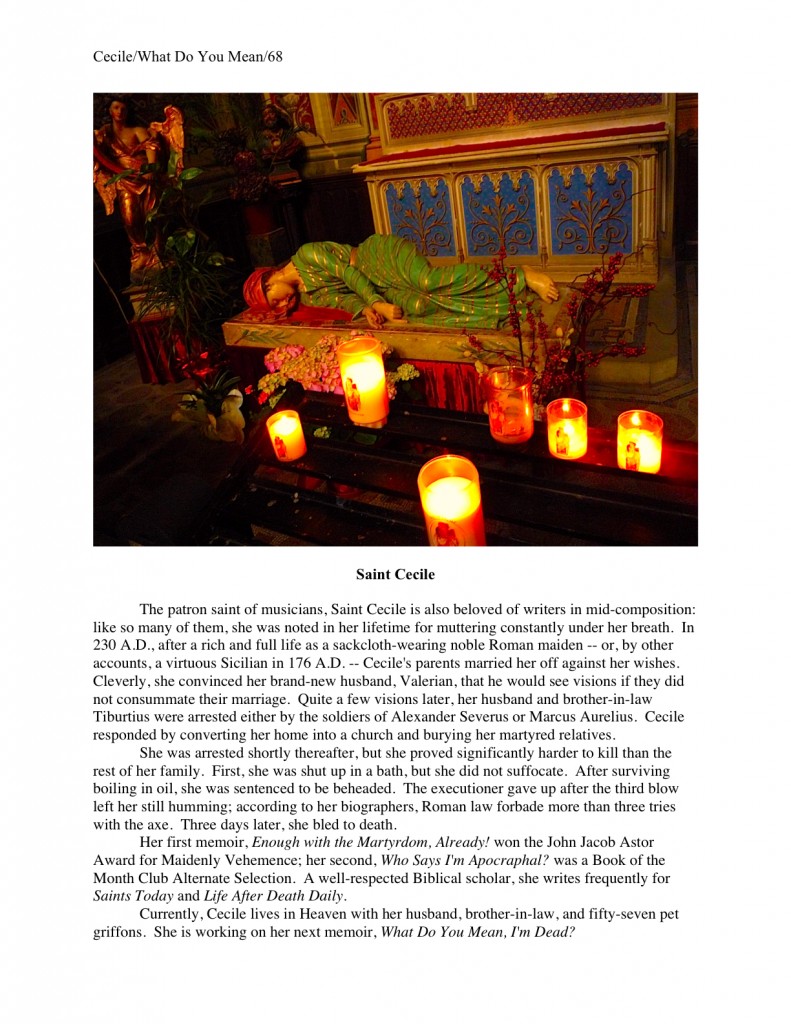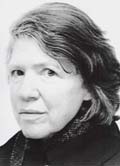Before we launch into today’s post, I have some good news and some less-good news to announce. No, make that fantastic and all-too-real news.
First, the phenomenal: please join me in a gigantic round of cheering for long-time Author! Author! reader Jay Kristoff, who had just landed a three-book deal with St. Martin’s/Tor UK for his STORMDANCER, a dystopian fantasy set in steampunk feudal Japan. Congratulations, Jay!
It just goes to show you: it can be done, people. Keep those chins high as you press forward.
Jay’s book sold at auction, and, good community member that he is, he has posted a really interesting account of it on his blog. How’s that for timely, since we’ve spent the last few weeks focusing upon how books move from manuscript to publication?
Speaking of which — and moving on to the less-good news — as those of you who check in here regularly may have noticed, I have been posting rather spottily for the last couple of weeks. That’s been due to a combination of positive (my niece’s wedding is next week) and less-positive factors (those pesky post-car crash injuries have been acting up again). Sensing a pattern here?
In an effort to save myself my now-habitual daily guilt when I do not post, as well as to save faithful readers a few minutes on those days, I’m going to take the next week off from posting. After I’ve finished throwing rice at relatives, I shall return, in theory refreshed. Or, at the very least, with a bit more time on my hands.
So do enjoy yourselves between now and the 17th. How about investing the time you would have spent reading my blog in sending out a couple of extra queries, or in doing a spot of revision on that manuscript?
Just a suggestion. On to the topic of the moment — which, as it happens, has everything to do with the ups and downs of a writing career. That, and predictability.
I freely admit it: I’m perpetually astonished at the things that are supposed to flabbergast otherwise reasonable adults. That characters on television shows who have been flirting for seven consecutive seasons suddenly end up romantically entangled during episodes aired during sweeps week, for instance: um, who precisely is not going to have seen that coming? Or that any major political initiative is greeted by anything but the unanimous approval of any given legislative body: as nearly as I can tell from the news every night, we’re all supposed to be floored by the fact that politicians disagree with one another from time to time, even when those splits run along precisely the party lines that characterized the last 17 major disagreements. Or that anyone’s cockles wouldn’t be warmed by the magic of Christmas.
Frankly, I like to think that people are a trifle less credulous than that — and more inclined to learn from experience. To paraphrase Abraham Lincoln, I don’t think too much of people who are not wiser today than they were yesterday.
Which is one aspect of how the publishing industry treats writers that I really like: it assumes not only that anyone who can write well enough to deserve to be published is an intelligent human being, but also that a good writer can and will learn the ropes of the business side of publishing. In this era where even news shows operate on the assumption that the average adult has the attention span of a three-year-old — and one who has been stuffing candy into his eager mouth for the last two hours at that — I find agents’ and editors’ presumption of authorial intelligence rather refreshing.
Unfortunately, most aspiring writers see only the negative fallout of this industry-wide assumption; since the pros expect writers to do their own research before trying to get their books published, those brand-new to the biz are often stunned that nobody in the industry spontaneously tells them what to do. Which is completely understandable, right? From a first-time querier’s perspective, it can seem downright counterproductive that agents just expect her to know what a query letter should look like, what information it should contain, and that it shouldn’t just read like a back jacket blurb for the book.
Heck, how is someone who has never met an agented author in person to know not just to pick up the phone and call the agent in question? Magic? Osmosis?
Similarly, agents, editors, and contest judges presume that anyone genuinely serious about her writing will have taken the time to learn how professional writers format their manuscripts — an interesting presumption, given that many, if not most, aspiring writers are not aware that professional manuscripts are not supposed to resemble published books. (To those of you who just gasped: you might want to take a barefoot run through our recent Formatpalooza series.)
Correct me if I’m wrong, but that’s not information that the average writer is born knowing. That’s a real shame, since professionally-formatted manuscripts tend to be taken far more seriously at submission time than those that are not.
Why? People who read manuscripts for a living tend to assume that good writers are intelligent human beings, that’s why. From Millicent the agency screener’s perspective, the only reason that a manuscript would not be formatted properly is that the submitter did not bother to do his homework.
Why does that matter? Well, a query or submission that does not conform to their expectations of what is publishable (in terms of writing) or marketable (in terms of content or authorial authority) is a sign that the writer just isn’t ready yet to play in the big leagues. In other words, even if the writing is pretty good and/or the book concept pretty engaging, Millicent might toss that fish back into the waters where she caught it.
That doesn’t necessarily mean that she believes the writer will never produce professional-level work; indeed, folks in the industry tend to assume (and even say at conferences) that they’re confident that if a truly talented writer gets rejected, she will take it as a sign that she needs to improve her presentation. Since the information on how to do that is available — although nowhere near as readily or conveniently as most agents who say this sort of thing seem to think — why wouldn’t someone with a genuine gift invest the time and effort in learning to do it right?
From the writer’s side of the game, there’s a very straightforward answer to that: because the average querier or submitter, gifted or otherwise, doesn’t have a clear idea of what he’s doing wrong. Since most rejection letters these days contain absolutely no clue as to what caused the agent (or, more commonly, the agent’s Millicent) to shove the submission back into the SASE — heck, some agencies no longer respond at all if the answer is no — no one should be particularly surprised if an aspiring writer’s learning curve isn’t always steep.
Why bring up the expectation of intelligent research toward the end of this series on how writers bring their books to publication, you ask? Because from an outside perspective, it’s just too easy to interpret the sometimes esoteric and confusing rules of querying, pitching, and submission as essentially hostile to aspiring writers.
That’s not really the case, you know. While many of the querying and submission restrictions have indeed been established, as we have discussed, in order to narrow the field of candidates for the very, very few new client slots available at most agencies, the intent behind that weeding-down effort is not to discourage talented-but-inexperienced writers from trying to get their work published.
The underlying belief is that an intelligent person’s response to rejection will not be to give up, but to analyze what went wrong, do some research about what can go right, and try, try again. Believe it or not, the fine folks who toil in agencies and publishing houses don’t expect the writers they reject to disappear permanently, at least not the ones with genuine talent. They believe that the gifted ones will return, this time better equipped for life as a professional writer.
Go back to your native element, little fish. We’ll see you again when you’re bigger.
Understanding this attitude is key to handling rejection with aplomb — or even translating agent-speak into writers’ English. Take, for instance, that old publishing industry truism, good writing will always find a
home. What the agents and editors who spout this aphorism seldom think to add is: but not necessarily right away. Like learning any other set of job skills, becoming a professional writer can take some time.
Which means, from the business side of the industry’s perspective, writers who give up after just a few rejections — which is the norm, incidentally, not the exception — are those who aren’t seriously interested in making the rather broad leap between a talented person who likes to write and a professional writer in it for the long haul. They don’t waste too many tears over the loss of the former.
I don’t see it that way, personally: talking to so many writers over so many years, I see the crushed dreams behind the writer who gives up after a single rejection as clearly as those belonging to the writer who is struggling through year 7 of an agent search. That pain is real. But that doesn’t mean that I don’t think that most talented aspiring writers take individual rejections from agents far, far too seriously.
Yes, you read that correctly: it’s very easy to overrate the importance of no. These days, it seems as though every other aspiring writer I meet has either:
(a) sent out a single query, got rejected, and never tried again,
(b) had a few queries rejected two years ago, and has been feverishly revising the manuscript ever since, despite the fact that no agent had yet seen it,
(c) pitched successfully at a conference, but convinced himself that the only reason four agents asked to see his first chapter was because those agents were just saying yes to everybody,
(d) received a positive response to a query or pitch, then talked herself out of sending the requested materials at all, because her work isn’t good enough,
(e) sent out the requested pages, but in order to save himself from disappointment, decided in advance that none of the replies will be positive,
(f) received the first manuscript rejection — and expanded it mentally into a resounding NO! from everyone in the industry, and/or
(g) concluded from conference chatter that no one in the industry is interested in any book that isn’t an obvious bestseller.
In short, each of these types of writers had decided that his or her fears about what happened were true, rather than doing the research to find out whether the response that fear and hurt dictated was in fact the most reasonable one. Don’t believe me? Just look how easily each of the conclusions above can be debunked:
(a) A single query is not — and cannot — be indicative of how every agent on earth will respond.
A better response: why not try again?(b) Until agents have actually seen the manuscript, there’s no way a writer can know how they will respond to it.
A better response: work on improving the query, then try again.(c) No, the agents and editors were not asking everyone to send chapters — pitching doesn’t work that way.
A better response: assume that you did something right and send out the requested materials.(d) How do you know for sure until you send it out?
A better response: learn how to present your work professionally, then submit it.(e) In my experience, foretelling doom does not soften future misfortune, if it comes — it only serves to stultify present hope.
A better response: hedge your bets by continuing to query other agents while waiting to hear back from the first round.(f) ANY agent or editor’s opinion of a book is just that, an opinion.
A better response: see (a)(g) the publishing industry makes most of its money on books that are neither bestsellers nor small-run books. Most of the time, the mid-list titles are paying the agency’s mortgage.
A better response: take the time to learn how the industry works, rather than killing your chances entirely by not continuing to try.
None of this is to say that bouncing back from rejection is easy, or that landing an agent is a snap. The road from first idea to publication is long and bumpy, and seems to get bumpier all the time.
As Maya Angelou tells us, “There is no greater agony than bearing an untold story inside of you.”
Yes, it’s emotionally hard work to prep your pages to head out the door to agents and editors; yes, it is hard to wait for replies to your submissions. To give you a foretaste of what’s down the road, it’s also psychically difficult to watch the weeks tick by between when you sign with an agent and when that sterling soul decides that, in her professional opinion, the time is ripe for her to submit your book to editors. And then it’s rough to wait until those editors get around to reading it, just as it is agonizing to hang around, feigning patience, between the time a publisher acquires your book and it appears on the shelves.
I’m not going to lie to you: it’s all incredibly wearing on the nerves.
That being said, if you are thinking about throwing in the towel on your book before you have given the querying and submission processes a thorough test, please do not look to me for validation of that decision. I’ll give you practical advice on how to query; I’ll hand you tips on how to improve your submission’s chances; I’ll share pointers on the fine art of revision; I’ll answer your questions along the way. I will cheer from the sidelines until I’m blue in the face for your efforts as a writer.
As long as you keep trying. As Jay’s triumph clearly illustrates, aspiring writers are still landing agents — as he did fairly recently — and selling first books.
But not if they give up. One of the few industry truisms that is true 100% of the time: the only book that has ABSOLUTELY no chance of being published is the one that stays hidden in the bottom drawer of the author’s filing cabinet.
Keep pushing forward; keep sending your work out. Because while it’s time-consuming, expensive, and emotionally wearing, it’s also literally the only way that your book — or any book — comes to publication.
Long-time readers of this blog will groan with recognition, but once again, I feel compelled to remind you that five of the best-selling books of the 20th century were rejected by more than a dozen publishers before they were picked up by publishers — and that was back in the days when it was considerably easier to get published. Everybody count down with me now:
Dr. Seuss, AND TO THINK THAT I SAW IT ON MULBERRY STREET (rejected by 23 publishers)
Richard Hooker, M*A*S*H (21)
Thor Heyerdahl, KON-TIKI (20)
Richard Bach, JONATHAN LIVINGSTON SEAGULL (18)
Patrick Dennis, AUNTIE MAME (17)
The lesson to derive here: keep moving forward. Please, please, PLEASE don’t dismiss your book too soon, on the basis of some preconceived notion of what will and will not sell — even if that preconceived notion fell from the ostensibly learned lips of the agent of your dreams.
Concentrate on what you can control, not what you can’t. In order to do that effectively, you’re going to need to learn about how the process actually works.
That’s the less-good news. The good news is that the writer does have practically absolute control over the technical and cosmetic aspects of the submission.
Yes, I know — for most of us, getting our thoughts, stories, and worldviews out there is the primary goal of writing a book, so concentrating on the details seems comparatively mundane. Applying and adhering to the rules of standard format is not a joy for anybody; when the aspiring writer first embraces it, it can seem like a necessary evil. Most of us want to move directly to unfettered self-expression — and then are surprised and frustrated when the resulting book has difficulty finding an agent, getting published, or winning contests.
But this is a bad idea, both professionally and emotionally. Concentrating almost exclusively on the self-expressive capacity of the book, we tend to read rejection as personal, rather than as what it is: an industry insider’s assessment of whether she can sell your work within her preexisting sales network. Ask anyone in the biz, and he will tell you: 99% of rejections are technically-based; the rejection usually isn’t of the submitter’s style or worldview, for the simple reason that those are not considerations unless the basic signs of good writing — in the sense of professional writing — are in the submission.
This can be a very empowering realization. As can coming to terms with the fact that while people may be born with writing talent, the ability to present writing professionally is a learned skill.
Once a writer grasps the difference between technically good writing and stylistic good writing and the distinction between a well-written manuscript and a professionally-formatted one, rejections become less a personal insult than a signal that there may be technical problems with how she is presenting her writing. The lesson to be learned from a rejection transforms from, “Why do they hate me?” to “What can I do to make this submission/query read better?”
Yes, yes, I know: emotionally speaking, it’s not much of an improvement, at least in the short term. But when the question is framed in the latter manner, there is something the writer can do about it. I’m a big fan of tackling the doable first, and getting to the impossible later.
Without a doubt, absolutely the best thing you can do to increase your chances is to make sure that your submission is crystal-clear and professionally formatted before you send it out. Out comes the broken record again: pass it under other eyes, preferably those of other writers, people who both know basic good writing when they see it AND have some idea how to fix it.
Does that giant gasp that just rent the ether mean that some of you had not thought of your first readers that way? Had you simply handed your manuscript to your nearest and dearest, or even to just anybody who asked to see it? As understandable as the impulse to share the product of your creative labors is, this practice is not likely to help you get your work published.
Why? Longtime readers of this blog, chant with me now: as marvelous as your kith and kin may be as human beings, they are unlikely to give you unbiased feedback — and only unbiased, knowledgeable feedback is going to help hoist your work up over the professional bar.
What else can you control, even a little? Well, you can avoid sending your query or submission during the traditional industry dead times (between the second week of August and Labor Day; between Thanksgiving and New Year’s day), or predictable periods of heavy submission (immediately after New Year’s, right after school gets out for the summer). You don’t want to have your work end up in the read when we get around to it pile, do you?
So for heaven’s sake, don’t forget to take a great big marker and write REQUESTED MATERIALS on the outside of your envelope, so your marvelous submission doesn’t get tossed into the unsolicited manuscript pile for a few months. It’s a good idea, too, to mention that these are requested materials in your HUGELY POLITE cover letter that you enclose with the manuscript: Thank you for asking to see the first three chapters of my novel…
While I’m being governessy, I might as well add: always, always include a SASE — a stamped, self-addressed envelope – with enough postage (stamps, not metered) for your manuscript’s safe return. In fact, you might want to mention the SASE in your cover letter. This marks you as a courteous writer who will be easy to work with and a joy to help. If you want to move your reputation up into the peachy range, include a business-size SASE as well, to render it a snap to ask you to see the rest of the manuscript. Make it as easy as possible for them to reach you to say that they love your book.
And no, green-minded aspiring writers: asking them to recycle your submission if they do not like it is no substitute for an appropriately-sized SASE. Sorry. In the first place — hold on to your hats here, because this is a genuine shocker by local standards — most of the offices in the industry do not even have recycling bins. (I know; it’s appalling, when you think about how much paper they see in a day.) And in the second place, they’ll just think you’re being rude. Sorry again.
One last thing, another golden oldie from my broken-record collection: do not overnight your manuscript; priority mail, or even regular mail, is fine. This is true, even if the agent who has your first chapter calls or e-mails you and asks for the rest of the manuscript immediately. It’s neither appropriate nor necessary to waste your precious resources on overnight shipping.
Trust me on this one: you may be the next John Grisham, but honey, it is unlikely that the agent’s office is holding its collective breath, doing nothing until it receives your manuscript. Hurrying on your end will not speed their reaction time.
Another way to keep your momentum going while you wait: since turn-around times tend to be long (a safe bet is to double what the agent tells you; call or e-mail after that, for they may have genuinely lost your manuscript), do not stop sending out queries just because you have an agent looking at your chapters or your book proposal. If an agent turns you down — perish the thought! — you will be much, much happier if you have other options already in motion.
Hey, not every fisherman agrees on what size of fish to throw back.
The only circumstance under which you should not continue querying is if the agent has asked for an exclusive look at your manuscript — which, incidentally, you are under no obligation to grant. However, politeness generally dictates agreement. If you do agree to an exclusive (here comes another golden oldie), specify in advance for how long you are granting it. Three months is more than generous. Then, if the agent does not get back to you within the stated time, you will be well within your rights to keep searching while she tries to free enough time from her kids, her spouse, her Rottweiler, etc. to read your submission.
Don’t let the hobgoblins of self-doubt carry you off, my friends. Have faith in your writing — and work hard to learn as much as you can to maximize your book’s chances of success.
Enjoy your week off, everybody. Keep up the good work!
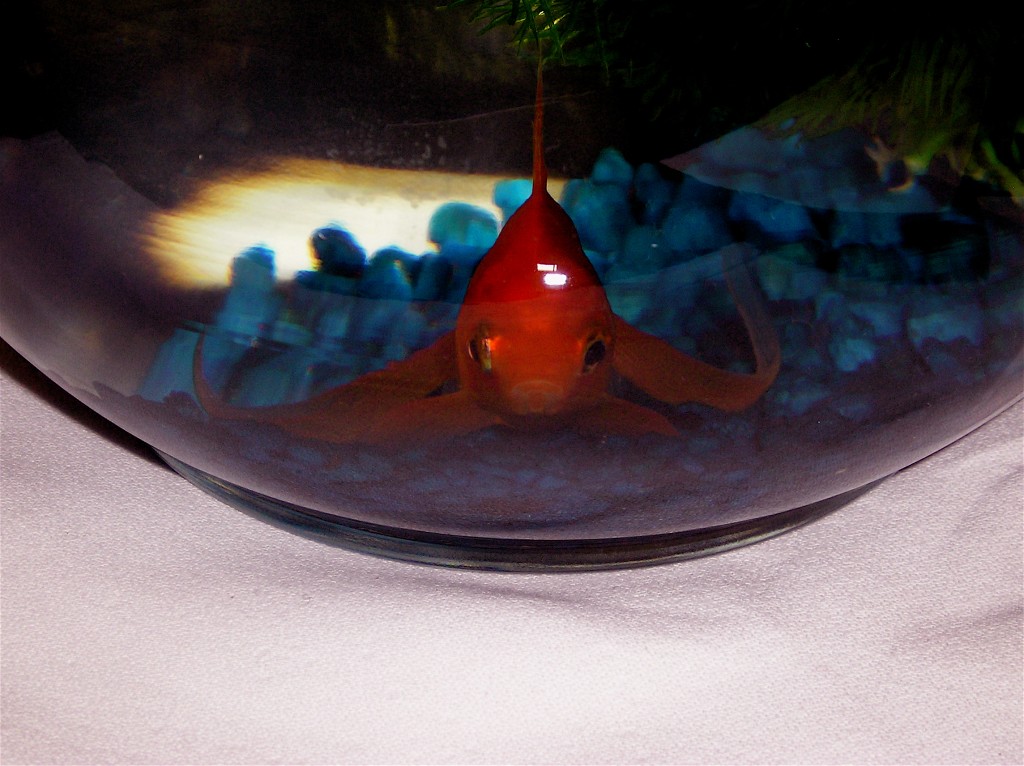




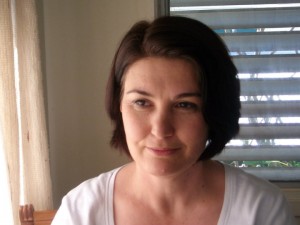
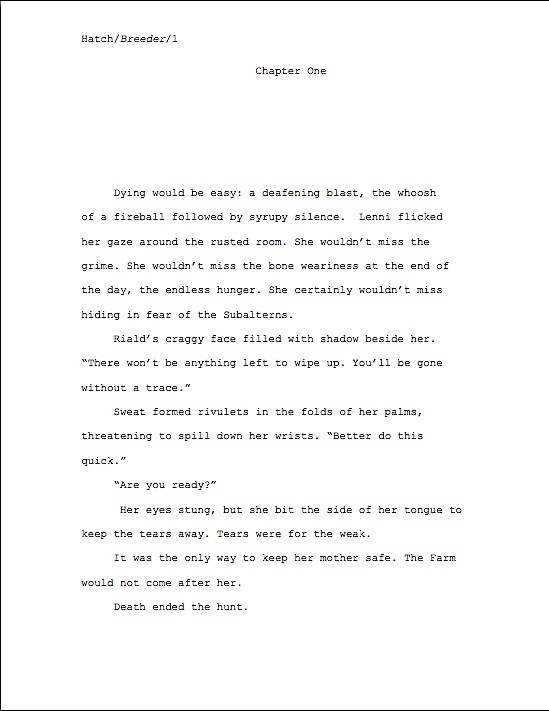
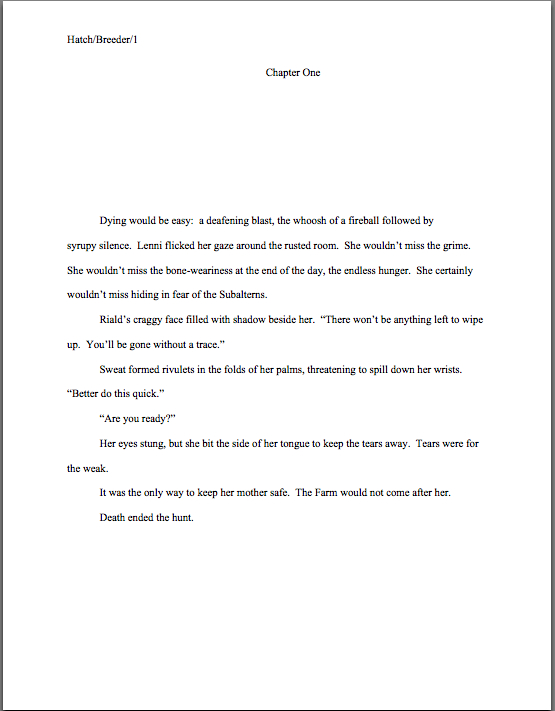
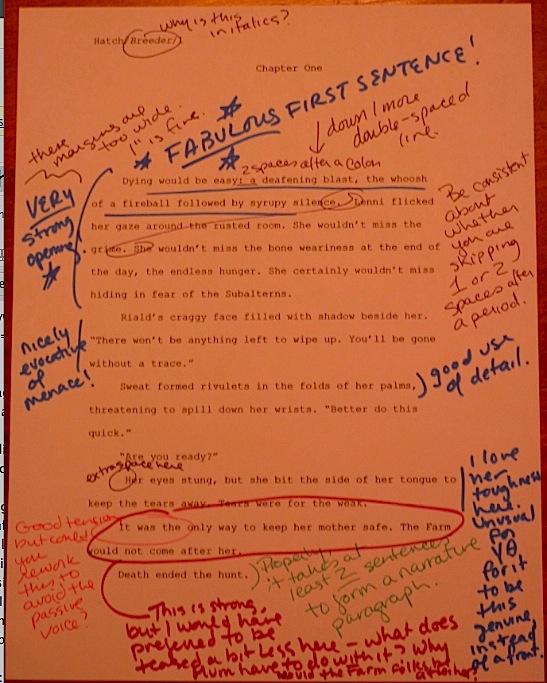

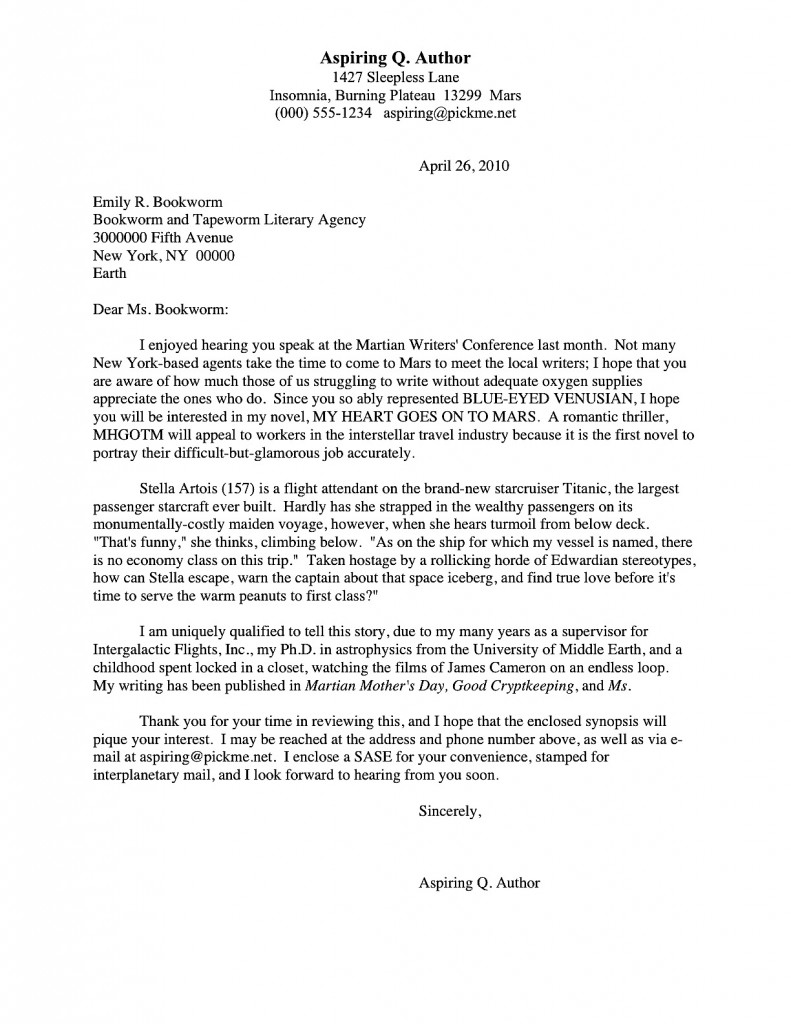
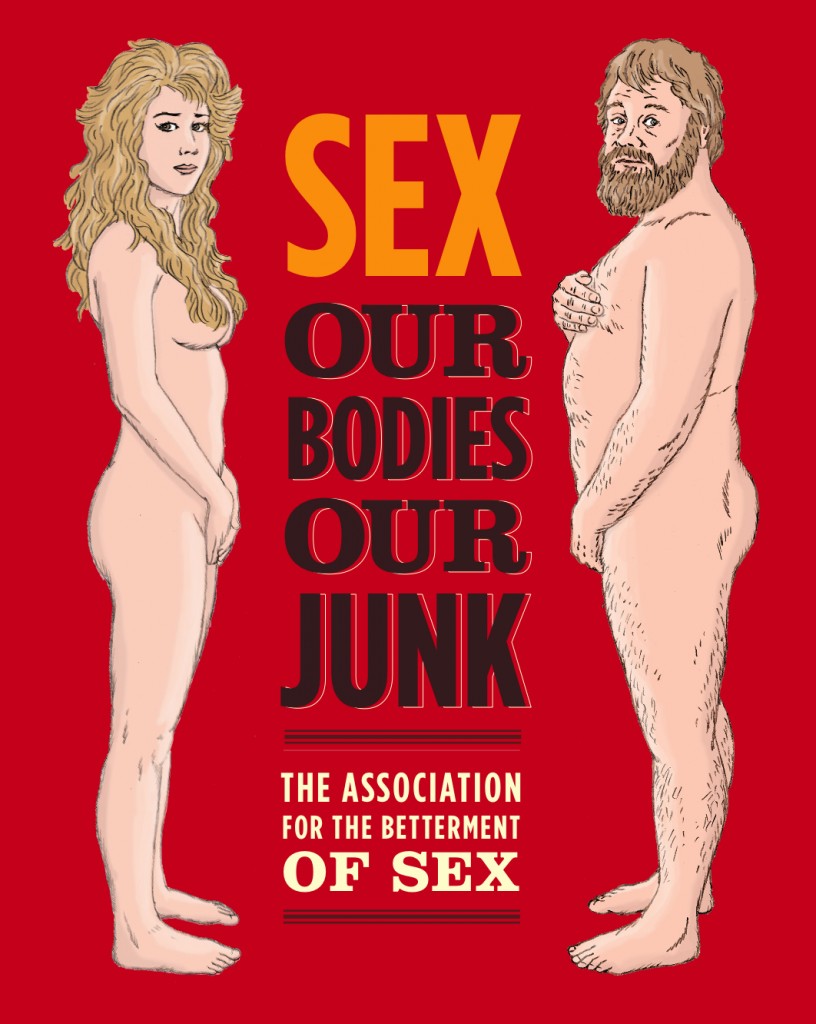

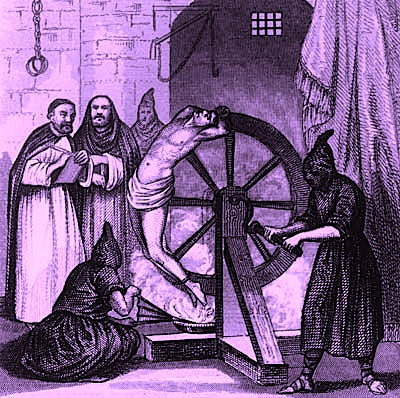
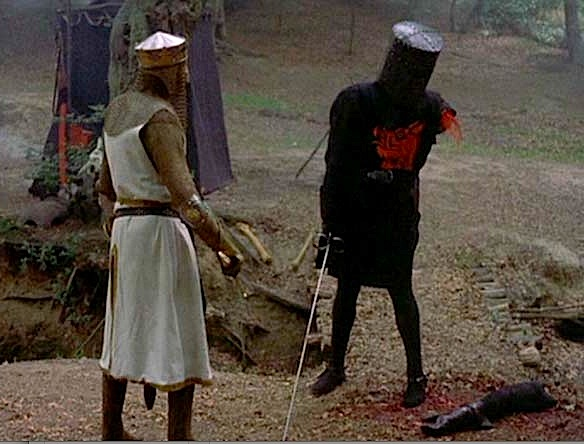
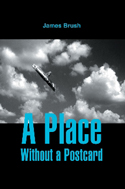
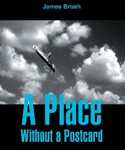 Paul Reynolds, a photographer who creates fake photos for tabloid magazines, wakes up with no idea where he is or how he got there. He can’t even recall his name. A strange man lurks nearby, breathing heavily and slowly flipping through a book. Paul hears the man’s breath, but he cannot see him. He realizes with mounting panic that his eyes no longer function.
Paul Reynolds, a photographer who creates fake photos for tabloid magazines, wakes up with no idea where he is or how he got there. He can’t even recall his name. A strange man lurks nearby, breathing heavily and slowly flipping through a book. Paul hears the man’s breath, but he cannot see him. He realizes with mounting panic that his eyes no longer function.


